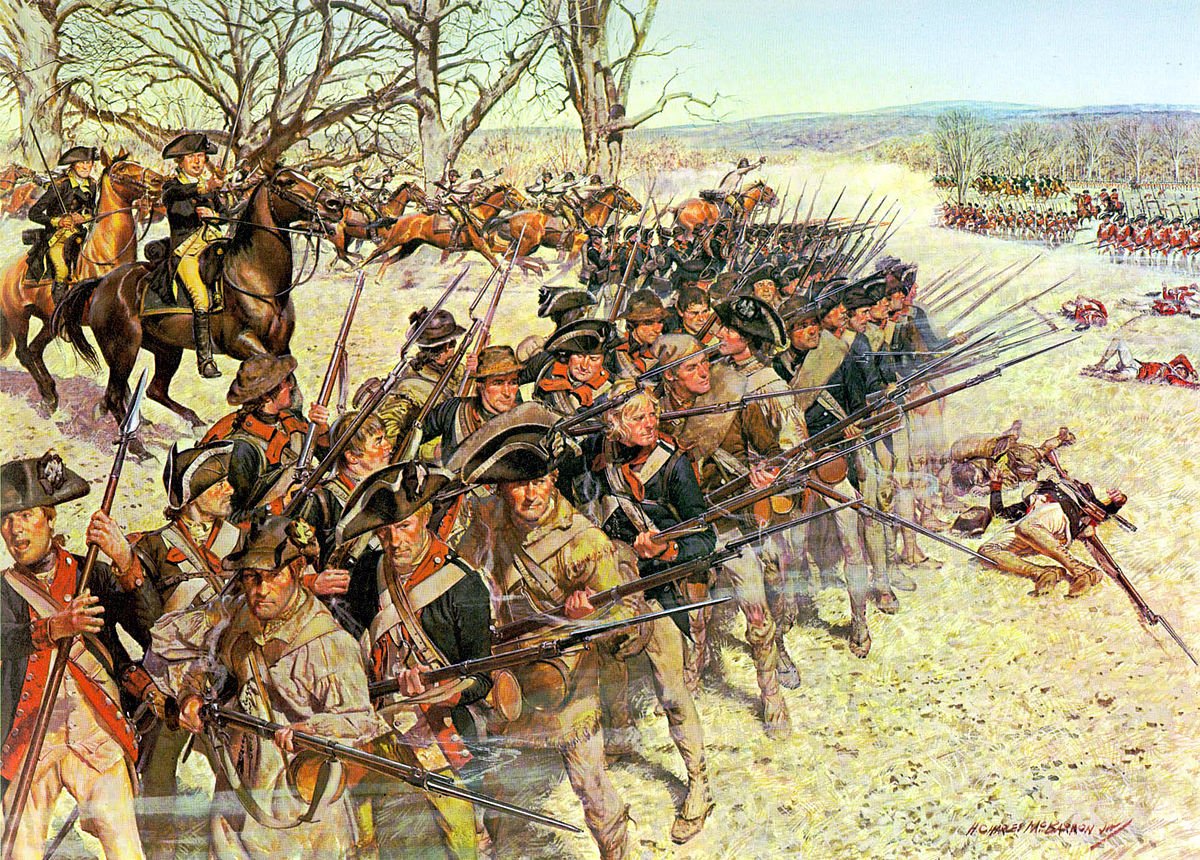1776 In Living Color
From 2025 to 2033, we will celebrate the 250th anniversary of the American Revolution. Before all the official events get underway, we need to understand who We The People, those who won our war for independence, really were. It was Irish as well as Anglos, Americans of African descent in substantial numbers, not to mention the Oneida nation. I do not want to hear silly questions like "Did you know some black men fought in the Revolutionary War?" Some? How about, every battle from the beginning at Lexington and Concord? How about, some 3000-5000 enlisted soldiers? These men, like all patriots, need to be woven into our conception and understanding, as integral to the entire war and all it accomplished. We cannot continue to rip these patriots out of American history without doing violence to the entire fabric of our war for independence. It should not be an afterthought or an add-on or "Oh, by the way..." We must make sure that it is impossible to think about or mention the American Revolution without all those who participated.
I recently watched a documentary on Benedict Arnold's contributions as a patriot before he flipped. In passing, it described the army that won the Battle of Saratoga -- the USA's first unambiguous major victory over a full British military force -- as "the most integrated American army until the
1960s." That leaves out a lot of other armies, including the army commanded by Andrew Jackson at New Orleans in the War of 1812. But its a good measure of the mobilization required to win our independence in the first place. This was also a campaign in which the Oneida -- who sided with the American forces throughout the war -- made critically important contributions to the victory of the Continental troops.
It is difficult to measure the exact number of American soldiers by race or ethnicity. Soldiers of African descent generally did not serve in racially segregated units. One exception was the First and Second Rhode Island regiments. Recruiting officers often were not particular about consistently recording the race of those they enlisted. It often was not a consideration. Some are known by names like "Caesar Negro" which is a good hint. Some have annotations in military documents referring to complexion or legal status. Some are known from documents in which their comrades-in-arms recommended them for commendation. But many are indistinguishable from their "white" fellow soldiers in basic military records. Its an unfortunate mental reflex that Americans of any race, creed, color, or national origin tend to assume that a historical figure is "white" unless someone points out one who is not. In the next two or three years, we need to lose that reflex as we commemorate our national origins.
I recently watched a documentary on Benedict Arnold's contributions as a patriot before he flipped. In passing, it described the army that won the Battle of Saratoga -- the USA's first unambiguous major victory over a full British military force -- as "the most integrated American army until the
1960s." That leaves out a lot of other armies, including the army commanded by Andrew Jackson at New Orleans in the War of 1812. But its a good measure of the mobilization required to win our independence in the first place. This was also a campaign in which the Oneida -- who sided with the American forces throughout the war -- made critically important contributions to the victory of the Continental troops.
It is difficult to measure the exact number of American soldiers by race or ethnicity. Soldiers of African descent generally did not serve in racially segregated units. One exception was the First and Second Rhode Island regiments. Recruiting officers often were not particular about consistently recording the race of those they enlisted. It often was not a consideration. Some are known by names like "Caesar Negro" which is a good hint. Some have annotations in military documents referring to complexion or legal status. Some are known from documents in which their comrades-in-arms recommended them for commendation. But many are indistinguishable from their "white" fellow soldiers in basic military records. Its an unfortunate mental reflex that Americans of any race, creed, color, or national origin tend to assume that a historical figure is "white" unless someone points out one who is not. In the next two or three years, we need to lose that reflex as we commemorate our national origins.


